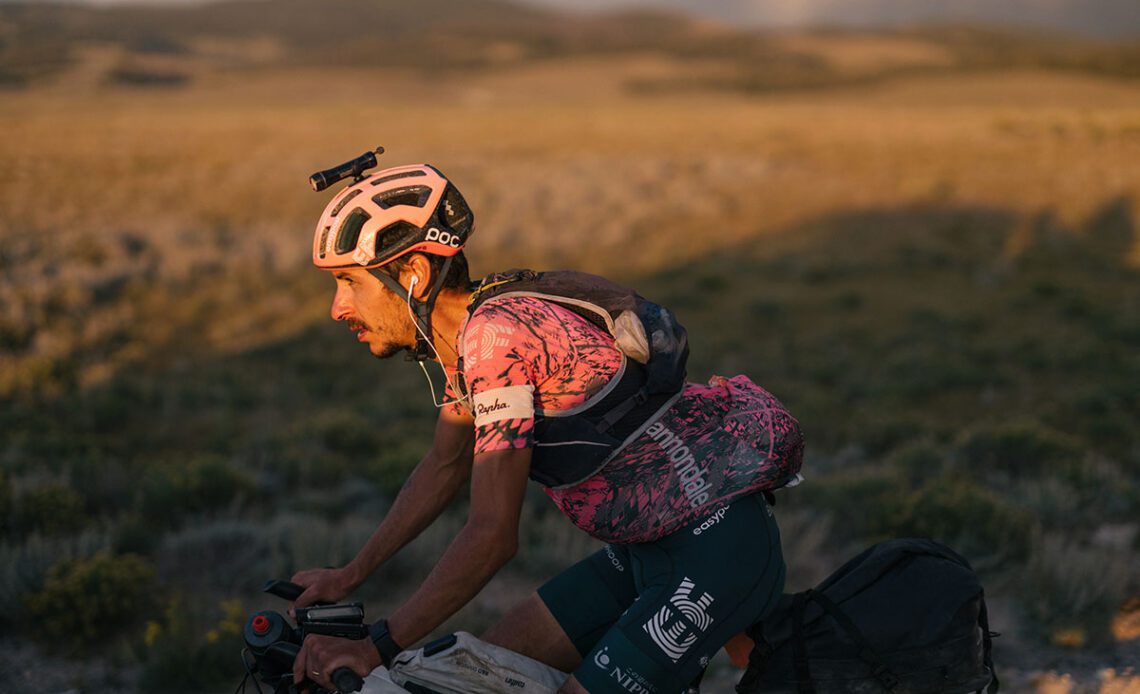On August 29 Lachlan Morton set out to take on the Tour Divide route – from Banff in Canada’s Rocky Mountains to Antelope Wells in New Mexico – to see just how quickly he could do it even while including a self-imposed minimum of 12 hours rest every 48 hours. The answer, it turns out, is pretty darn quick.
EF Education-EasyPost said that Morton had covered 2,670 miles in 12 days, 12 hours and 21 minutes. The acknowledged fastest known time set by a self-supported rider has long been 13 days 22 hours and 51 minutes, a mark set by ultra-endurance behemoth Mike Hall in 2016 over a course which has altered somewhat since. It was a longer distance according to Hall’s tracking data of the time, which shows a distance of 2712.8 miles.
Still, Morton was fully aware when setting out that his time is unlikely to be considered a replacement self-supported record, as not only has the course of the annual self-supported race altered over time, the presence of a film crew has also been a contentious issue in the past given its impact on a key mental element in the self-supported race, being truly alone.
Morton was confronted by a wide range of challenges throughout the 12-and-a-half days, with plenty of wet and cold weather, peanut butter mud, fire diversions, saddle sores, trench foot and a dead derailleur on day 11, which led to some bush mechanics.
“I kicked it as hard as I could and then it started working again,” said Morton in an update from the trail, though then it stopped again. First option exhausted, Morton then resorted to shifting via a spoke shoved into the derailleur.
Morton’s effort has also delivered more than just an impressive time, perhaps shedding just a little more light on a key, but complex, issue in ultra-endurance racing of whether it possible to deliver a fast pace without sacrificing too much sleep.
“I am really interested to see with this approach, how fast you can really go and if it would be competitive with people who have really pushed that sleep element,” said Morton before setting out.
While not directly equating to sleep time, the data on Morton’s tracking dot put his stopped time at 30 percent of his total, which equates to a little over seven hours a day, and was higher than the percentage of stopped time shown in the tracking data of both Hall in 2016 – at around 24 percent – and 2023 Tour Divide winner Ulrich Bartholmoes – at over 23 percent.
Through the ride Morton has raised funds for Adventure for All, with the…
Click Here to Read the Full Original Article at CyclingNews RSS Feed…

